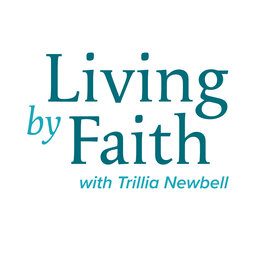Demonstrating God's Love through Adoption and Foster Care
An incredible real-life tale of adoption out of East Texas. Twenty-two church-going families adopted 76 children out of foster care in the late nineties. Trillia Newbell talks with Joshua and Rebekah Weigel who are bringing their stories to the big screen. Their passion ignited a national movement for vulnerable children that continues today.
Living by Faith with Trillia Newbell
Moody Publishers author Trillia Newbell encourages you to take God at His Word and live out your fai…Social links
Follow podcast
Recent clips

FInding Solace in Jesus When Your Faith is Shaken
47:00

Learning to Love Better
47:00

Celebrating Black History Month and God's Beautiful Design
47:00
 Living by Faith with Trillia Newbell
Living by Faith with Trillia Newbell
